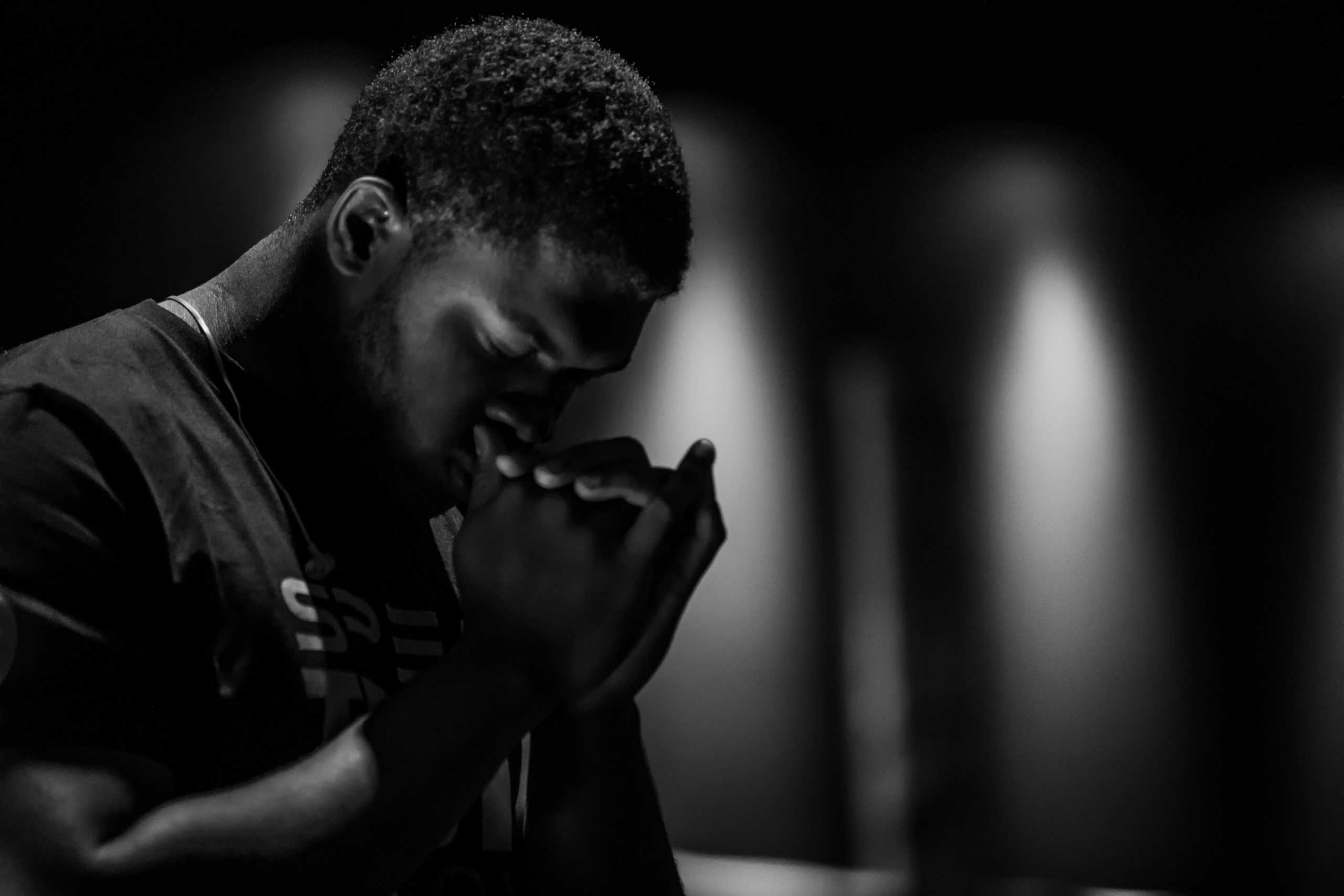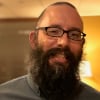This is the fourth installment of A Deacon’s Diary. In the third installment, Steve grappled with finding his voice in the pulpit.
I.
I was standing on the street outside of Marsh Chapel at Boston University. BU’s Catholic Chaplain, our FOCUS missionaries, and I were staffing a table, holding signs that read: Ask A Priest A Question. A passerby commented: The signs should read: “I’m a Priest. AMA [Ask Me Anything.]” I thought to myself: I’m glad they don’t say that. I’m not sure I want to answer just ANY question.
Thankfully, most questions from students and passersby had been friendly and curious about Catholicism. One interlocutor told off-color jokes, flirted with the women at the table, and asked me about my sexual orientation. This is how it goes with street ministry, especially wearing a Roman collar.
One student dressed in joggers and a blue and red Boston University hoodie dropped by the table. He was sincere and his blue eyes glanced at our signs as though an answer might be written there. He runs an ecumenical bible study for BU’s Swimming Team, and they’ve been pondering: what do we do with doubt? Some thought that having doubt meant not having faith or not trusting God.
Various members of our chaplaincy ventured answers to the perennial problem. It was not a new question for me. This question was like an old friend. I listened intently.
II.
Questions like this had been showing up recently as though they were looking for me. A few days prior, I had been guest lecturing at Harvard Divinity in a course on neuroscience and spirituality. The topic was the history of prayer in Western Christianity. I began the class with an exercise in apophatic contemplation—an exercise of imageless, silent prayer. I asked the students to describe their experience and then I began lecturing, trying to provide them with chronological and conceptual frameworks for discussing Christian prayer. During the Q&A, we returned a bit to the contemplative exercise and the challenges of sitting in silence.
One student asked me: How do you pray when you have doubt?
I looked over at the professor and said: Am I allowed to curse? He nodded.
I turned back to the student and said: Pardon my language, but it’s really f*cking hard to sit down to pray every morning in a period of doubt. But we make commitments to religious vows, to a relationship with God, to a life of service to God’s people. And our friends, our community, the people we serve help us to keep those. They remind us of the importance of commitment in a time of doubt. But it’s incredibly f*cking hard and even agonizing sometimes.
Students laughed. But they listened intently, too.
Honestly, I didn’t have a good answer. It’s a question that challenges and gnaws at one’s interior sometimes. But doubt is a gift sometimes, I thought.
III.
I’ve never had an experience of love untouched by doubt. Whether it’s the love of friends, family, God, brother Jesuits. Doubt is an eventual guest to every relationship I have had. It doesn’t matter which relationship, eventually I doubt in all the unfortunately typical ways: does this person actually love me? Am I worthy of love? Do I actually love them?
IV.
In the middle of all this, I was preaching one Sunday. The gospel was Jesus and the great commandment (Love God, and Love your neighbor as yourself). I talked about a friend of mine—we’d been friends for at least fifteen years. Given the amount of times I’ve moved as a Jesuit, we’ve had a lot of phone conversations. I told my congregation that I always hesitated to say “I love you” first. I always waited for her to tell me at the end of the conversation and then I’d quickly reciprocate. I wondered aloud what this meant—insecurity, I concluded, as I reflected on the challenges of loving God and loving others.
In the middle of the homily, however, there was a key change. The challenges of loving could be overcome, I said, by imitating Jesus. Marsh Chapel, although Methodist, has a large image in the middle of the sanctuary of Jesus holding his heart ablaze, perfect for Catholics who might be familiar with the Sacred Heart image. I gestured at this large statue, flanked by the four evangelists, looking on calmly, as though someone holding a fiery heart was an everyday occurrence.
I proclaimed: See! Jesus is there, offering us a heart as a model to imitate. A heart consumed, on fire with love for us. The same Jesus who models perfect love in giving us himself in the Eucharist—broken and shared. Therefore, when we are challenged by loving God or loving others—maybe our roommates or religious brothers who forget to empty the dishwasher sometimes —let us try and imitate a God who always seeks to love us.
V.
Back on the street, it was my turn to address the kid in joggers. I looked him in the eye—everyone else was occupied with other questions. I counselled him: Doubt is important. But it’s often an engagement of the intellect, maybe of intellect alone, without heart or spirit. Doubt can be helpful in motivating us to formulate questions and seek answers. God, however, gave us more than just reason. What is your heart doing?
I referred him to the passage of the disciples on the Road to Emmaus from the end of Luke’s gospel. Those disciples certainly engaged intellectually as they walked—they were discussing the meaning of the scriptures and prophecies about the Messiah. But it was their hearts that they noticed most: their hearts were burning within them as they met and spoke with Jesus. Pay attention to that, I said.
He was following, standing close to the table so he could hear me better. I continued: Do you read Tolkien? He was surprised by the question, but smiled and nodded. In The Fellowship of the Ring there’s a moment in which Frodo is trying to decide whether to take up the journey to find Bilbo and (ultimately) destroy the Ring. The text at that moment tells us that Frodo’s heart was kindled. It’s right there. That’s what made his decision for him. So, look for that.
As I chatted with him tears were streaming down my face. I ignored them and looked stoic. I discreetly wiped them away with a handkerchief as the student left our conversation to go to class.
In the next installment of A Deacon’s Diary, a strange noise keeps waking Steve up.
-//-
Photo by Jack Sharp on Unsplash.


